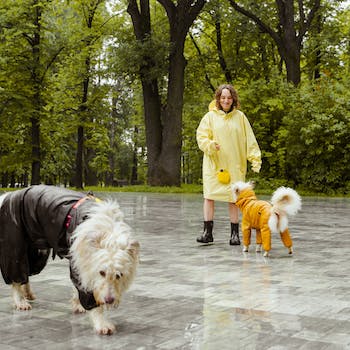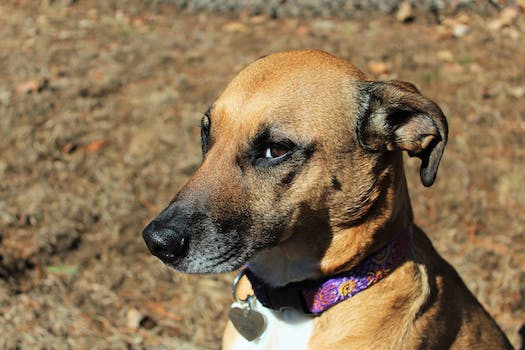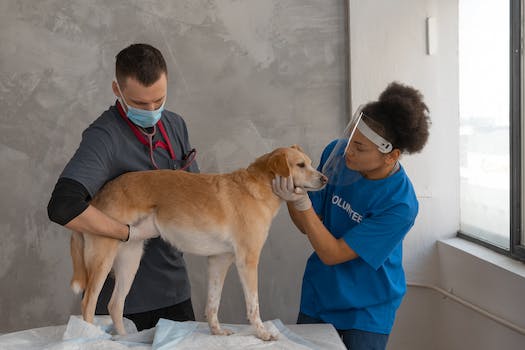

-
Table of Contents
"Unlocking the Paw-some Potential: Mastering Socialization and Behavior Training for Puppies"
Introduction
Introduction:
Effective socialization and behavior training for puppies is crucial for their overall development and well-being. During the early stages of a puppy's life, they are highly impressionable and capable of learning and adapting to their environment. Proper socialization helps puppies develop positive relationships with humans and other animals, while behavior training establishes boundaries and teaches them appropriate behaviors. By providing puppies with the necessary socialization and behavior training, we can set them up for a lifetime of positive interactions and good behavior.
The Importance of Early Socialization for Puppies
Effective Socialization and Behavior Training for Puppies
Puppies are adorable, playful, and full of energy. They bring joy and happiness to our lives, but they also require proper socialization and behavior training to become well-adjusted and obedient dogs. Early socialization is crucial for puppies as it helps them develop into confident and well-behaved adult dogs. In this article, we will explore the importance of early socialization for puppies and how it can be effectively achieved.
Socialization is the process of exposing puppies to various people, animals, environments, and experiences in a positive and controlled manner. It helps them learn how to interact with the world around them and develop appropriate behaviors. Early socialization is particularly important because puppies have a critical period between 3 and 14 weeks of age when they are most receptive to new experiences and learning.
During this critical period, puppies are like sponges, absorbing everything they encounter. They are more open to new experiences and less likely to develop fear or aggression towards unfamiliar things. By exposing them to different people, animals, and environments, we can help them build positive associations and reduce the likelihood of fear or aggression later in life.
One of the key benefits of early socialization is that it helps puppies develop good manners and appropriate behavior. Through positive interactions with other dogs and people, puppies learn how to play nicely, greet politely, and respond to commands. They also learn how to control their impulses and exhibit self-control, which is essential for their safety and the safety of others.
Furthermore, early socialization helps puppies become more adaptable and less prone to anxiety or stress. By exposing them to different environments, such as parks, streets, and crowded places, we can help them become comfortable and confident in various situations. This is particularly important for puppies that will eventually become service dogs, therapy dogs, or participate in dog sports.
So, how can we effectively socialize puppies during their critical period? The key is to expose them to a wide range of positive experiences while ensuring their safety and well-being. Here are some tips to help you with the socialization process:
1. Start early: Begin socializing your puppy as soon as you bring them home. The earlier you start, the better.
2. Gradual exposure: Introduce your puppy to new experiences gradually, starting with familiar and controlled environments before moving on to more challenging ones.
3. Positive reinforcement: Use treats, praise, and rewards to reinforce positive behaviors during socialization. This will help your puppy associate new experiences with positive outcomes.
4. Controlled interactions: Ensure that all interactions with people and animals are safe and supervised. Avoid overwhelming your puppy with too many stimuli at once.
5. Consistency: Be consistent in your approach to socialization. Regularly expose your puppy to new experiences and reinforce positive behaviors.
Remember, socialization is an ongoing process that should continue throughout your puppy's life. It is not a one-time event. By providing your puppy with positive and controlled socialization experiences, you are setting them up for a lifetime of happiness and well-being. So, start early, be consistent, and enjoy the journey of raising a well-socialized and well-behaved dog.
Effective Techniques for Training Puppy Behavior

Effective Socialization and Behavior Training for Puppies
When it comes to raising a well-behaved and socially adept puppy, effective socialization and behavior training are essential. Puppies are like sponges, absorbing everything around them, and it is during their early months that they form the foundation for their future behavior. By implementing the right techniques, you can ensure that your puppy grows up to be a happy and well-adjusted adult dog.
One of the most important aspects of puppy training is socialization. Socialization involves exposing your puppy to a wide variety of people, animals, and environments in a positive and controlled manner. This helps them develop confidence and learn how to interact appropriately with others. It is crucial to start socializing your puppy as early as possible, ideally between the ages of 3 and 14 weeks.
To effectively socialize your puppy, you should gradually introduce them to different people, including men, women, children, and individuals wearing hats or glasses. It is also important to expose them to other animals, such as dogs, cats, and even livestock if possible. Additionally, exposing your puppy to various environments, such as parks, busy streets, and different types of flooring, will help them become comfortable in different situations.
During the socialization process, it is important to monitor your puppy's reactions and provide positive reinforcement for good behavior. If your puppy shows signs of fear or anxiety, such as cowering or hiding, it is crucial to remain calm and reassure them that everything is okay. By gradually exposing them to new experiences and rewarding them for positive behavior, you can help them overcome their fears and build confidence.
In addition to socialization, behavior training is another crucial aspect of raising a well-behaved puppy. Behavior training involves teaching your puppy basic commands, such as sit, stay, and come, as well as addressing common behavior issues, such as chewing or jumping. Consistency and positive reinforcement are key when it comes to behavior training.
When teaching your puppy commands, it is important to use clear and consistent cues. Start with simple commands and gradually increase the difficulty as your puppy becomes more proficient. Always reward your puppy with treats, praise, or playtime when they successfully follow a command. This positive reinforcement helps them associate good behavior with positive outcomes.
Addressing behavior issues requires patience and understanding. For example, if your puppy is chewing on furniture, redirect their attention to an appropriate chew toy and praise them when they chew on it instead. Consistency is crucial in addressing behavior issues, as inconsistency can confuse your puppy and make it harder for them to understand what is expected of them.
It is also important to remember that puppies have short attention spans, so training sessions should be kept short and frequent. Aim for multiple short training sessions throughout the day rather than one long session. This will help keep your puppy engaged and prevent them from becoming bored or overwhelmed.
In conclusion, effective socialization and behavior training are essential for raising a well-behaved and socially adept puppy. By gradually exposing your puppy to different people, animals, and environments, you can help them develop confidence and appropriate social skills. Consistency and positive reinforcement are key when it comes to behavior training, ensuring that your puppy learns and retains the desired behaviors. With the right techniques and a little patience, you can set your puppy up for a lifetime of good behavior and happiness.
Common Challenges in Puppy Socialization and How to Overcome Them
Effective Socialization and Behavior Training for Puppies
Common Challenges in Puppy Socialization and How to Overcome Them
Socialization is a crucial aspect of a puppy's development. It helps them become well-adjusted, confident, and friendly dogs. However, there are common challenges that puppy owners face when it comes to socializing their furry friends. In this article, we will discuss these challenges and provide tips on how to overcome them.
One of the most common challenges in puppy socialization is fear and anxiety. Puppies are naturally curious, but they can also be easily frightened by new experiences and unfamiliar environments. This fear can manifest in various ways, such as hiding, trembling, or even aggression. To overcome this challenge, it is important to expose your puppy to new experiences gradually and in a controlled manner. Start with low-stress environments and gradually increase the level of difficulty. Provide positive reinforcement, such as treats and praise, to help your puppy associate these new experiences with something positive.
Another challenge in puppy socialization is aggression towards other dogs or people. This can be a result of fear, lack of proper socialization, or even genetics. It is important to address this issue early on to prevent it from becoming a long-term problem. Seek the help of a professional dog trainer or behaviorist who can guide you in implementing behavior modification techniques. These techniques may include desensitization and counter-conditioning, where your puppy is gradually exposed to the trigger in a controlled environment while receiving positive reinforcement.
Separation anxiety is another common challenge in puppy socialization. Puppies are naturally social animals and can become anxious when left alone. This can lead to destructive behavior, excessive barking, and even self-harm. To overcome separation anxiety, it is important to gradually accustom your puppy to being alone. Start with short periods of separation and gradually increase the duration. Provide your puppy with interactive toys or puzzles to keep them occupied while you are away. Additionally, create a safe and comfortable space for your puppy, such as a crate or a designated area, where they can feel secure.
House training is yet another challenge that puppy owners often face. Puppies have small bladders and may not have full control over their bodily functions. Accidents are bound to happen, but with consistent training and patience, you can overcome this challenge. Establish a routine for your puppy, including regular feeding times and bathroom breaks. Take your puppy outside after meals, naps, and playtime, and reward them with praise and treats when they eliminate in the appropriate area. Consistency is key in house training, so be prepared for accidents and clean them up without scolding your puppy.
In conclusion, socialization and behavior training are essential for the healthy development of puppies. However, there are common challenges that puppy owners face, such as fear and anxiety, aggression, separation anxiety, and house training issues. By gradually exposing your puppy to new experiences, seeking professional help when needed, and being consistent in your training efforts, you can overcome these challenges and raise a well-socialized and well-behaved furry companion. Remember, patience and positive reinforcement are key in effective socialization and behavior training for puppies.
Q&A
1. How can I effectively socialize my puppy?
Expose your puppy to various people, animals, and environments in a positive and controlled manner. Gradually increase exposure and provide positive reinforcement for calm and appropriate behavior.
2. What are some important aspects of behavior training for puppies?
Consistency, positive reinforcement, and patience are key. Use reward-based training methods, establish clear rules and boundaries, and address any behavioral issues promptly.
3. When should I start socializing and training my puppy?
Start socializing and training your puppy as early as possible, ideally between 3 to 14 weeks of age. Early socialization and training lay the foundation for a well-behaved and confident adult dog.
Conclusion
In conclusion, effective socialization and behavior training for puppies is crucial for their overall development and well-being. It helps them become well-adjusted, confident, and obedient dogs. Early socialization exposes puppies to various people, animals, and environments, reducing the likelihood of fear or aggression later in life. Positive reinforcement training techniques, such as rewards and praise, are effective in teaching puppies desired behaviors and preventing unwanted ones. Consistency, patience, and proper guidance from owners or trainers are key to successful socialization and behavior training for puppies.












